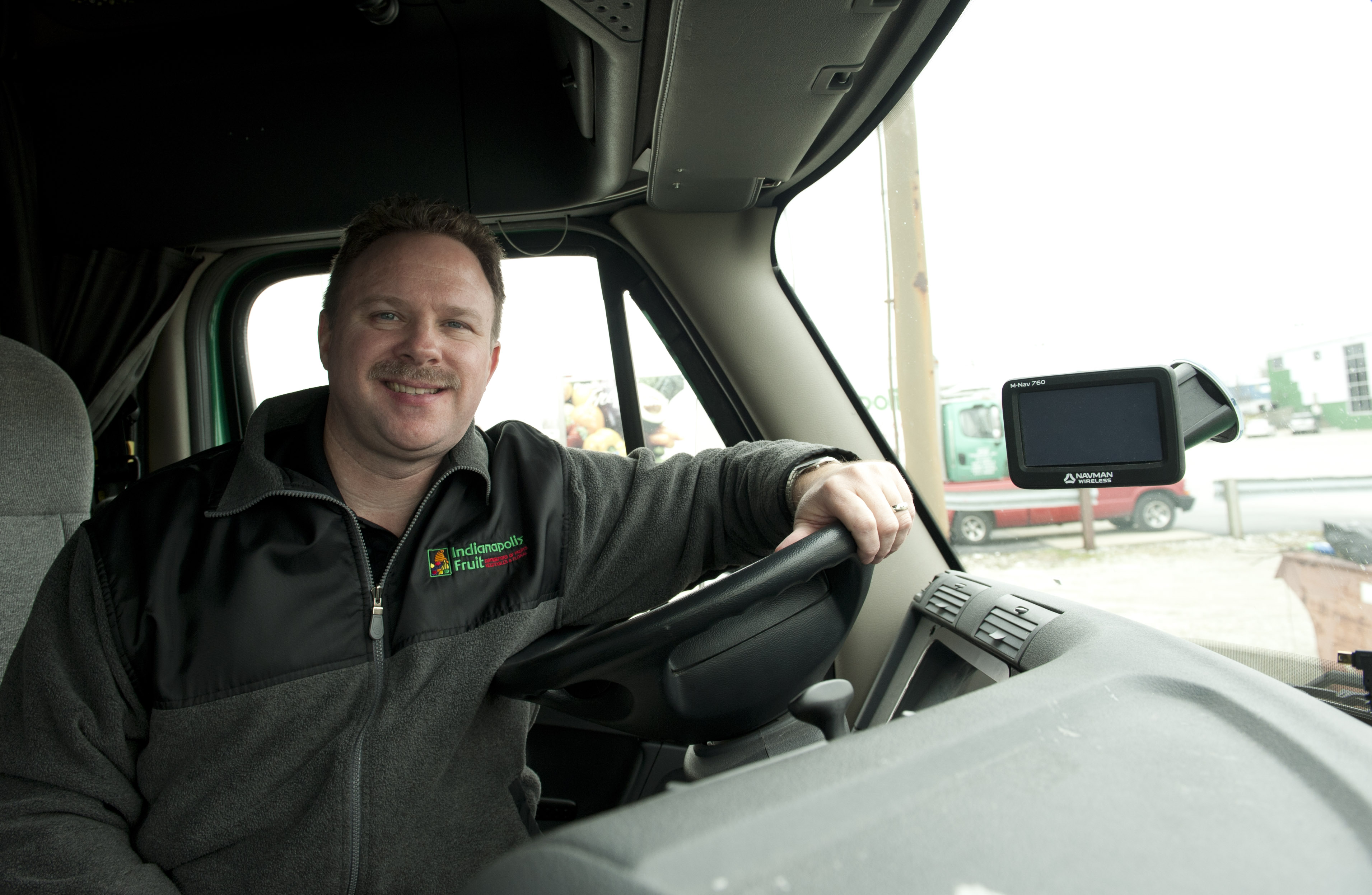GPS saves gas for produce delivery company


Even as safety advocates debate which electronic gadgets should or should be available to use while driving, more evidence emerges that global positioning satellite (GPS) receivers and telematics devices are fabulous tools for improving fleet efficiency.
One of the latest examples to capture my attention involves Indianapolis Fruit, a midsize produce delivery company that uses about 65 trucks to deliver fruits and vegetables to Illinois, Indiana, Kentucky, Michigan, Ohio, Tennessee and Wisconsin.
Michael Gilbert, director of logistics for Indianapolis Fruit, engaged with Navman Wireless for services that help track and optimize routes. The company tested the GPS systems and application in 20 trucks before deploying them to the entire 65-vehicle fleet a few months later. The system helped identify routes that were taking too long to complete, as well as thought that could support an additional stop. "It was clear within 45 days that the system was going to pay for itself very quickly," he said.
The drivers were briefed in advance on what the systems were tracking, specifically prolonged idling (which is a waste of gas) and long delivery stops (even though the drivers are, in essence, customer service representatives and are encouraged to talk to clients, there is a limit to chit-chat). Here are specific behaviors that have been addressed as a result of the technology, Gilbert said.
- Idle times: Idling can cost up to 1 gallon of gas every hour. If every truck makes six to 10 stops per day and each idling period is 10 minutes, on average, that adds up pretty quickly. This was one of the biggest surprises for the company, according to Gilbert. By bringing the implications of excessive idling to drivers' attention, Indianapolis Fruit was able to reduce fuel costs by an average of 8 percent to 9 percent per vehicle, Gilbert said.
- Prolonged delivery times: The Navman Wireless technology quickly helped reduce the amount of time that drivers spent offloading their trucks at each stop. Across the fleet, average delivery times were reduced about 25 percent, Gilbert said.
- Route optimization: Indianapolis Fruit was able to study each of its routes more closely and reorganize some of them, to better organize the sorts of things that were being delivered to different customers. Some of the routes were changed to add new stops. Gilbert said that many drivers were willing to explore new areas because they had the comfort of knowing where they were going.
I mentioned before that Indianapolis Fruit could tell within 45 days that it had made the right investment. The company actually paid for the installation of the technology with its savings within 90 days, Gilbert said. (It takes from 20 to 30 minutes for Navman Wireless to install its technology in each vehicle, he estimated.) Indianapolis Fruit pays for the systems through a leasing arrangement. The systems can be upgraded wirelessly, without having to change out the hardware.
(Image courtesy of Indianapolis Fruit)
This post was originally published on Smartplanet.com